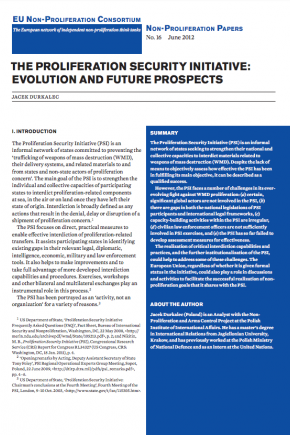The Proliferation Security Initiative: Evolution and Future Prospects
The Proliferation Security Initiative (PSI) is an informal network of states seeking to strengthen their national and collective capacities to interdict materials related to weapons of mass destruction (WMD). Despite the lack of means to objectively assess how effective the PSI has been in fulfilling its main objective, it can be described as a qualified success. However, the PSI faces a number of challenges in its everevolving fight against WMD proliferation: (a) certain, significant global actors are not involved in the PSI, (b) there are gaps in both the national legislations of PSI participants and international legal frameworks, (c) capacity-building activities within the PSI are irregular, (d) civilian law enforcement officers are not sufficiently involved in PSI exercises, and (e) the PSI has so far failed to develop assessment measures for effectiveness. The realization of critical interdiction capabilities and practices, and the further institutionalization of the PSI, could help to address some of these challenges. The European Union, regardless of whether it is given formal status in the initiative, could also play a role in discussions and activities to facilitate the successful realization of nonproliferation goals that it shares with the PSI.

